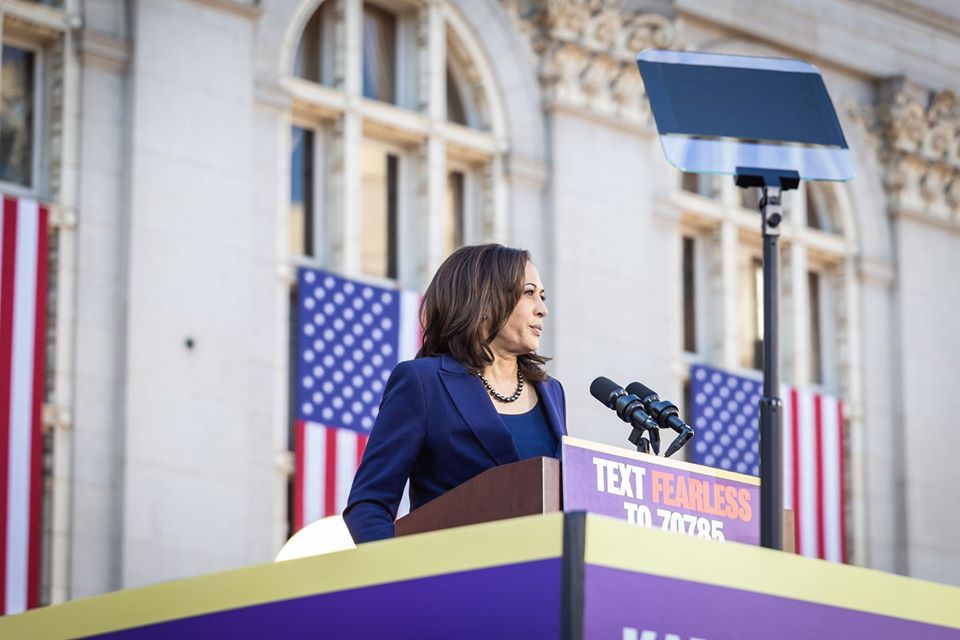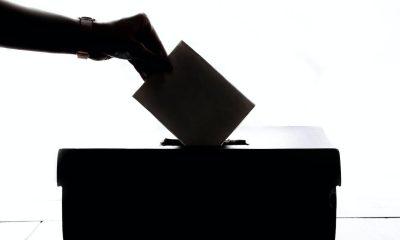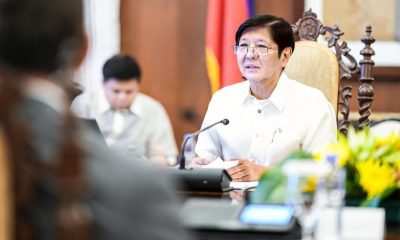News
How race and gender affect who looks like a winner

Although female and non-white candidates win American elections at the same rates as white men, Democrats persistently doubted that the country would elect a woman president or a person of colour. (File photo: Kamala Harris/Facebook)
When Americans go to the polls on Nov. 3, they will either re-elect President Donald Trump or vote in the Democratic nominee, former vice-president Joe Biden.
Throughout the Democratic presidential primary, Biden supporters argued that he would be especially competitive against Trump because of his race and gender.
Meanwhile, Democratic primary voters’ focus on “electability” posed challenges for the female and Black contenders for the Democratic nomination.
Although female and non-white candidates win American elections at the same rates as white men, Democrats persistently doubted that the country would elect a woman president or a person of colour.
In a new article in the journal Perspectives on Politics, I call this type of reasoning “strategic discrimination.” Even when people are themselves willing to support diverse candidates, they may hesitate to do so because they fear others are biased against those candidates.
Of course party leaders and primary voters select candidates based on policy positions and qualifications. But they also need to find candidates who can win a general election. So party insiders try to anticipate which candidates will be most electable. In other words, who looks like a winner?
In my large experiment, I find that electability is a biased metric. Americans see white male candidates as more electable than equally qualified Black women, white women and to a lesser extent, Black men. The results are strongly intersectional, with Black women considered significantly less competitive than otherwise identical white women and Black men.
Are white men really a safer bet?
When party members are selecting candidates, they may gravitate toward white men because they feel like a safer bet, as opposed to taking a risk on a woman, a person of colour or especially a woman of colour.
But these judgments are based on misperceptions of others’ beliefs. In my research, I find that Americans’ estimates of other Americans’ levels of racism and sexism are three or four times too high.
In one of my studies, a nationally representative sample of Americans believed nearly half of their fellow citizens would not be willing to vote for a qualified woman for president, and believed more than 40 per cent would not be willing to vote for a qualified Black candidate — this despite the fact that Barack Obama was twice elected president, and Hillary Clinton won the popular vote in 2016.
Polling from the Angus Reid Institute suggests that compared to Americans, Canadians are more optimistic about their country’s willingness to elect diverse leaders.
Nonetheless, strategic discrimination happens in Canada too. In the Canadian context, strategic discrimination is most likely during party leadership elections.
Wynne addressed her sexuality
Perhaps the most notable Canadian example comes from Kathleen Wynne’s 2013 quest to lead the Ontario Liberal Party. Wynne faced internal party concerns that Ontario residents would be unwilling to elect a gay premier.
The issue was so significant that Wynne spent fully a fifth of a major convention speech addressing it. “I want to put something on the table,” she told the convention delegates:
“Is Ontario ready for a gay premier? You’ve heard that question. You’ve all heard that question. But let’s say what it really means: can a gay woman win? That’s what it means. So, not surprisingly, I have an answer to that question. When I ran in 2003, I was told that the people of North Toronto and the people of Thorncliffe Park weren’t ready for a gay woman. Well, apparently they were. … I do not believe that the people of Ontario judge their leaders on the basis of race, sexual orientation, color, or religion. I don’t believe they hold that prejudice in their hearts.”
Wynne’s speech was met with resounding applause. Wynne prevailed in her leadership election, and she led her party to victory in the next general election.
Convincing other party members
Nonetheless, strategic discrimination continues to shape Canadian politics.
When Jagmeet Singh launched his campaign for leader of the federal NDP in 2017, he was greeted with a predictable question: But can he win?
Some of this skepticism was due to Singh’s lack of federal political experience. But people also doubted whether Canada was ready for a Sikh prime minister, particularly one who wears a turban.
Like Wynne, Singh ultimately won his leadership contest. Yet because of his identity, he had to clear additional hurdles to advance within his party.
My research shows that in the U.S., race and gender affect who looks like a winner. The experiences of Singh and Wynne suggest that a similar dynamic occurs within Canadian political parties as well.![]()
![]()
Regina Bateson, Visiting Professor at the University of Ottawa, Political Science, L’Université d’Ottawa/University of Ottawa
This article is republished from The Conversation under a Creative Commons license. Read the original article.





















